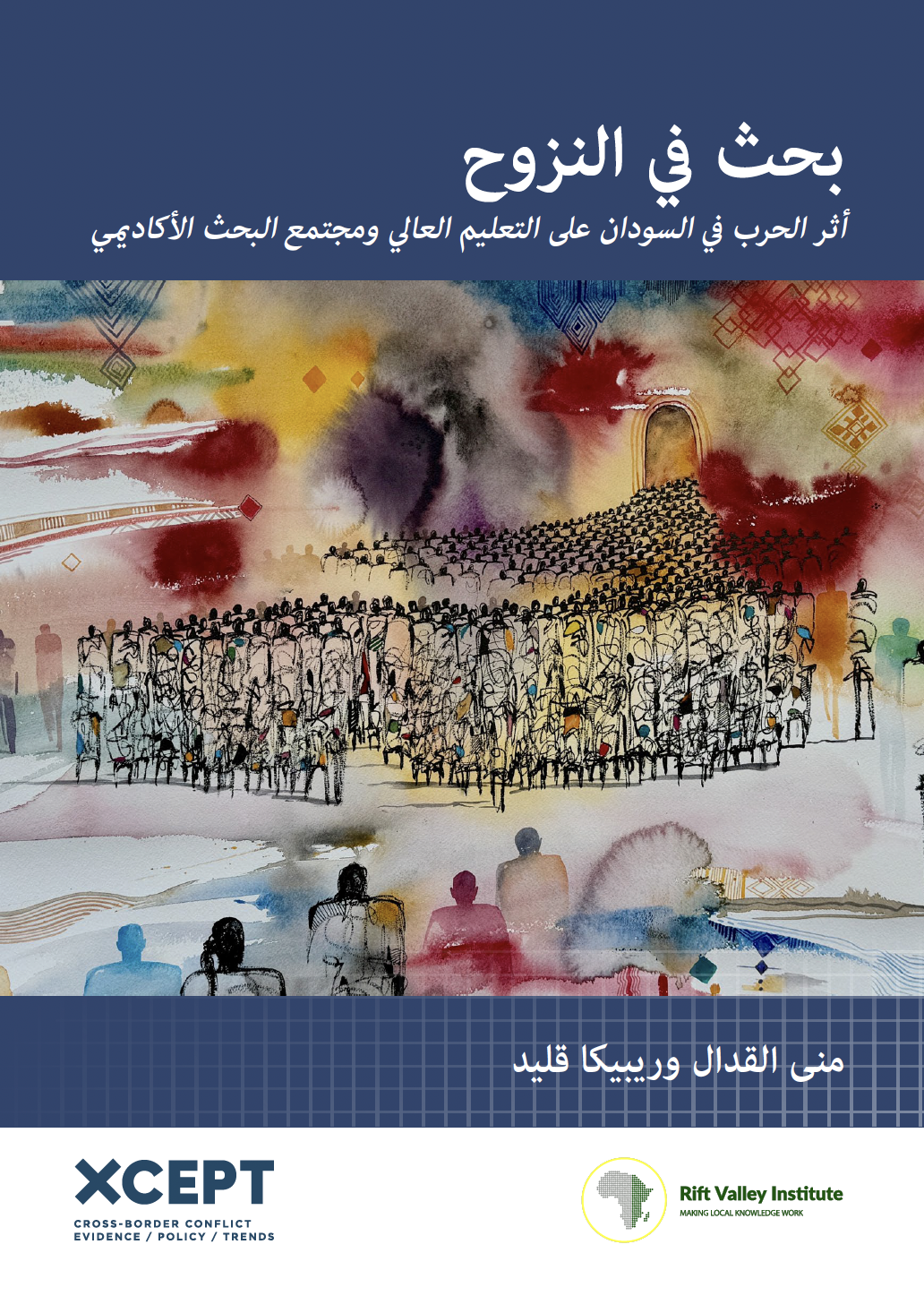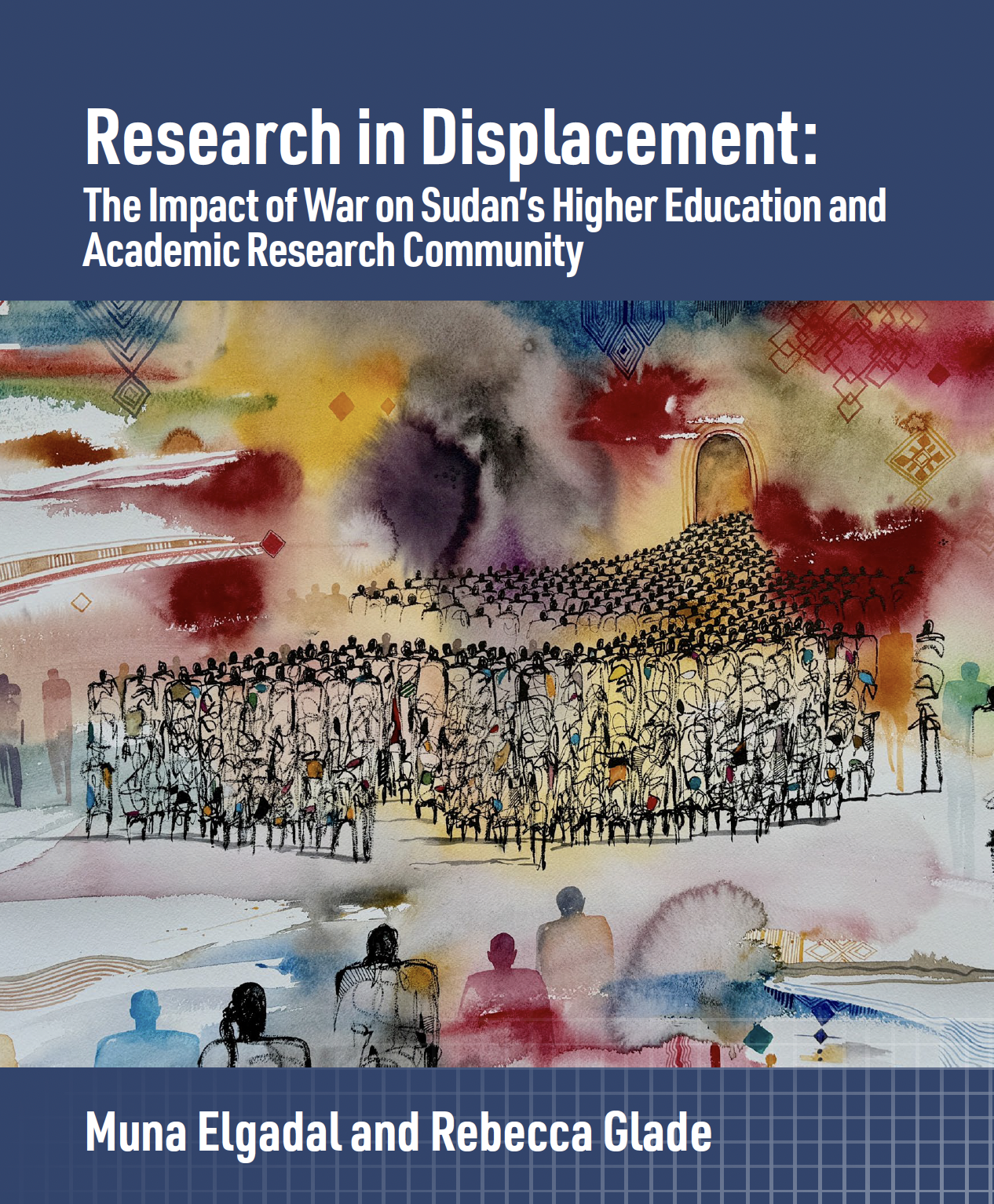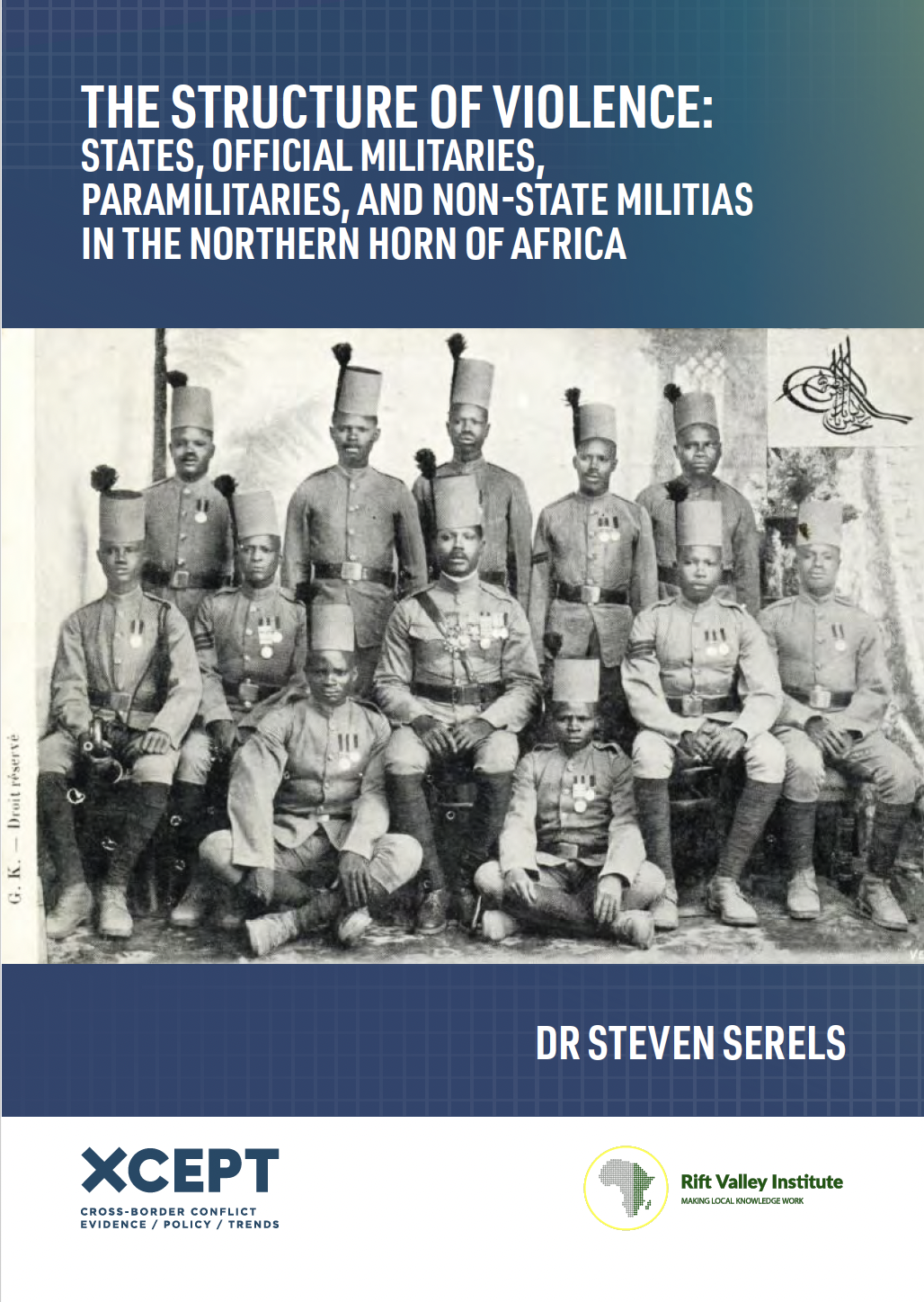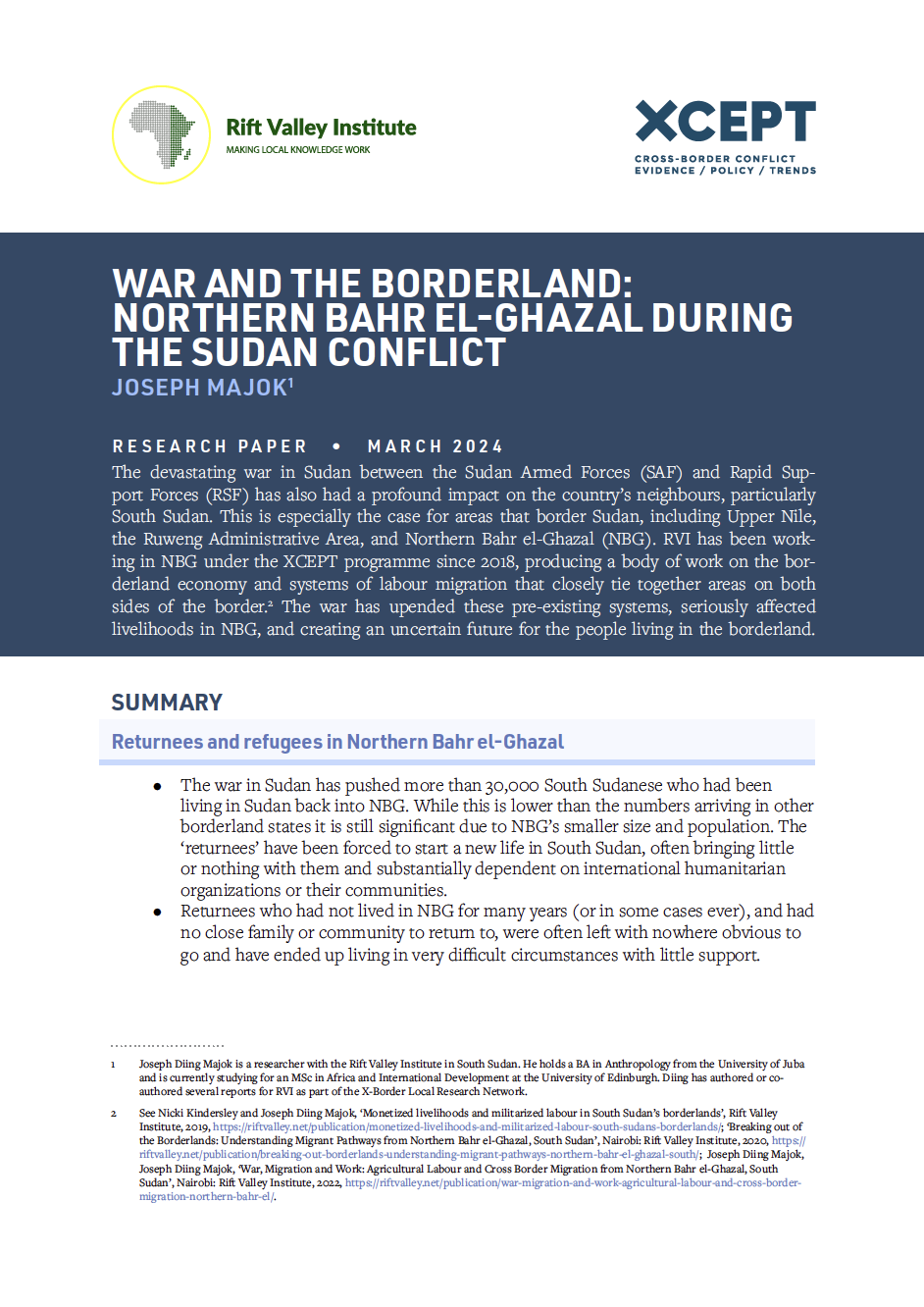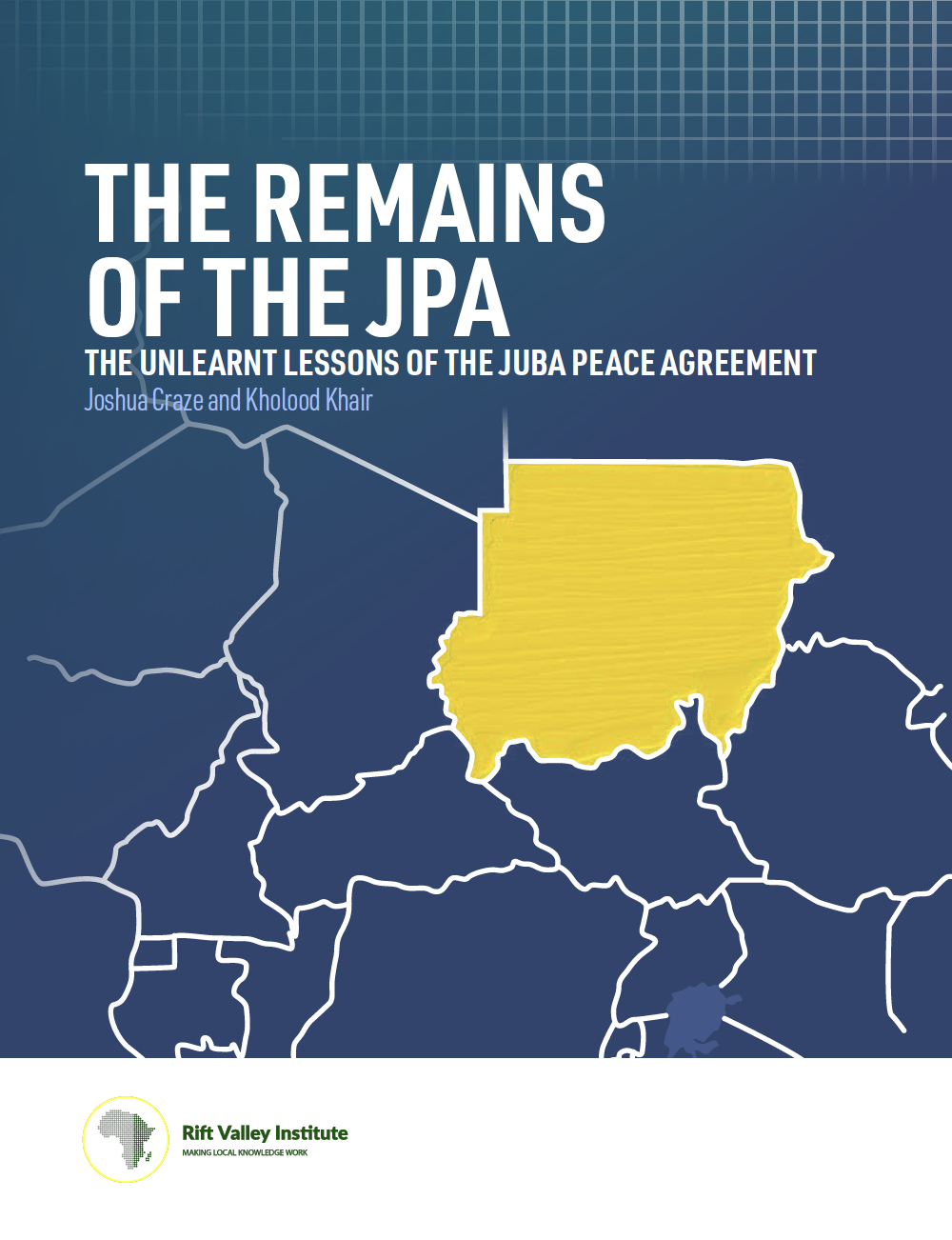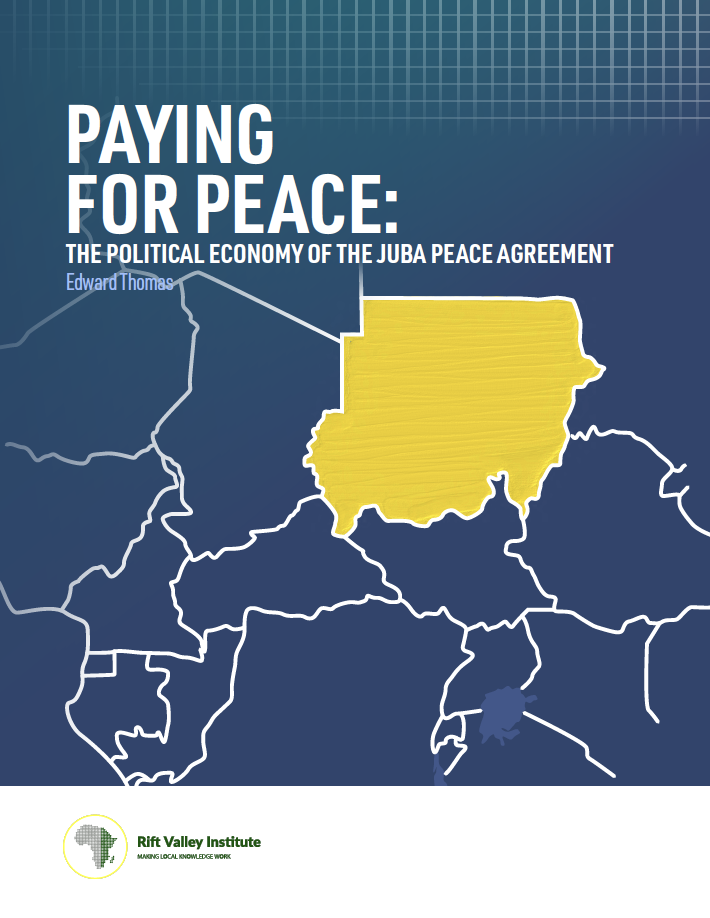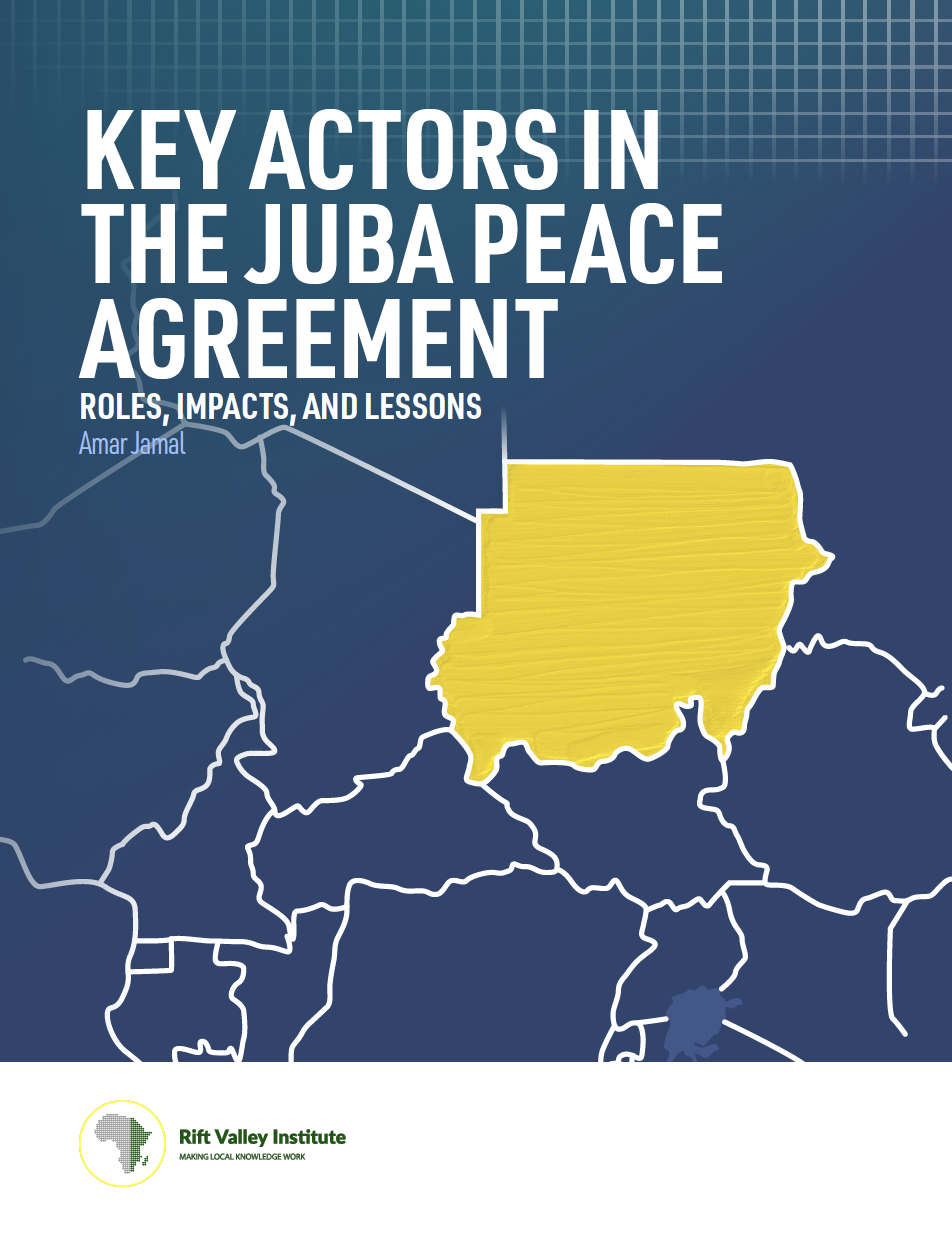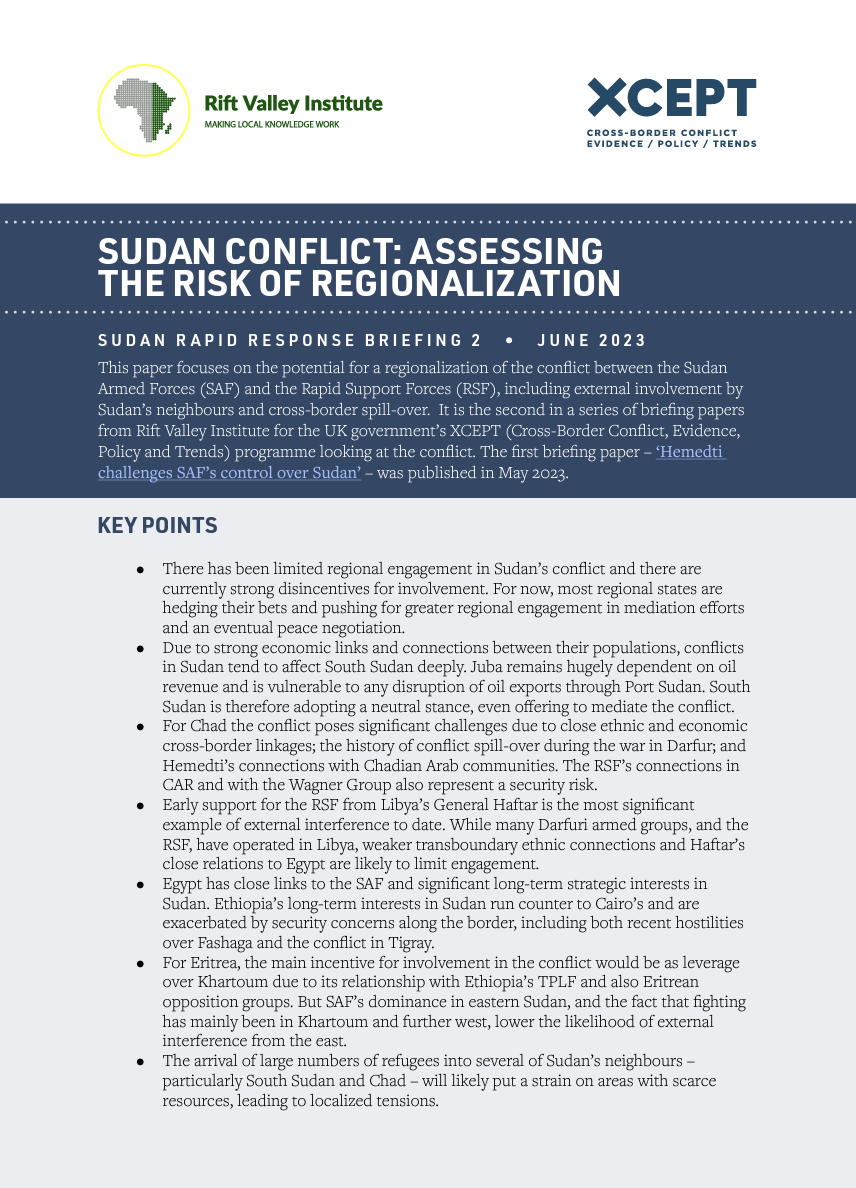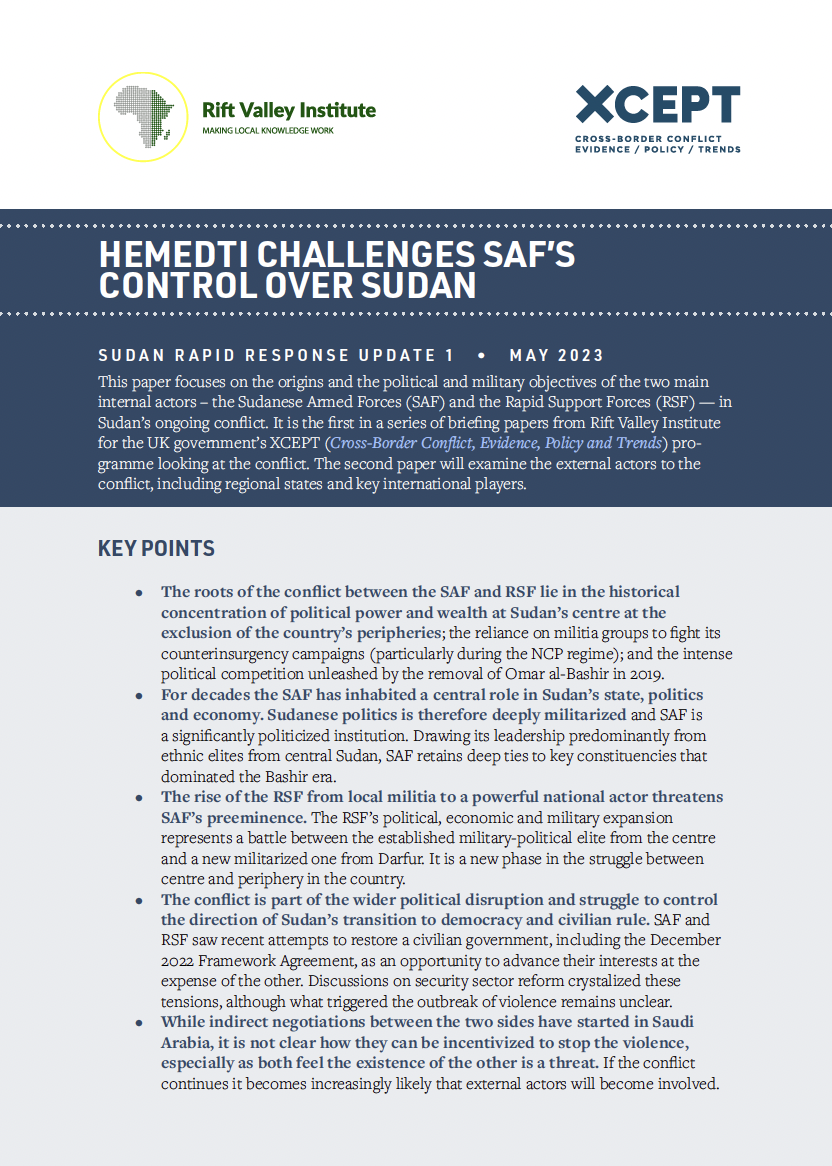أثر الحرب في السودان على التعليم العالي ومجتمع البحث الأكاديمي ملخص تنفيذي خلف اندلاع الحرب في السودان في أبريل 2023 دماراً ومعاناة لا حصر لها، مما شكل تهديداً لمؤسسات مهمة على امتداد القطر. ومن ضمنها مؤسسات التعليم العالي السودانية،…
RVI publishes books, research reports, research papers, briefings and meeting reports in a range of formats. Publications cover policy, research, arts, culture and local knowledge in the countries of eastern and central Africa. Research publications—books, reports and papers—are peer-reviewed. Some RVI publications are also available in French and/or Arabic.
The RVI is a signatory of the Budapest Open Access Initiative (2001); all publications are free for download in PDF format under Creative Commons licences. The views expressed in books and reports published by the RVI are those of the authors, not the Institute.
SEARCH
PUBLICATION TYPE
LANGUAGE
REGION
COUNTRY
SUMMARY The outbreak of war in Sudan in April 2023 has created immeasurable suffering and damage, threatening critical institutions across the country. Amongst these is Sudanese higher education, which has faced not only the destruction of critical facilities, but…
This research paper builds on work the Rift Valley Institute (RVI) has conducted on the Sudan–Ethiopia borderland under the XCEPT programme since 2021. This culminated in the report ‘Resistance in the Peripheries: Fragile peace and civil war in Sudan…
EXECUTIVE SUMMARY In Sudan and Ethiopia, official militaries are currently fighting against paramilitaries and non-state militias that, previously, had been important battlefield allies. The ongoing violence does not reflect a breakdown in the political order. Rather, these conflicts are…
The devastating war in Sudan between the Sudan Armed Forces (SAF) and Rapid Support Forces (RSF) has also had a profound impact on the country’s neighbours, particularly South Sudan. This is especially the case for areas that border Sudan,…
SUMMARY At its signing in October 2020, it was hoped that the Juba Peace Agreement (JPA) would finally address the root causes of the conflicts in Sudan. Three years later, it is clear that the most important legacy of…
SUMMARY Sudan’s economy is based on resources that have been exploited via violence rather than through peaceful, sustainable means. As a result, those who have benefited are those who control the means of violence. Furthermore, the inequalities in wealth,…
SUMMARY The Juba Peace Agreement (JPA) was negotiated beginning in September 2019 in the South Sudanese capital by representatives of Sudan’s new civilian-military transitional government and a collection of Sudan’s armed and civilian opposition groups comprising the Sudanese Revolutionary…
This paper focuses on the potential for a regionalization of the conflict between the Sudan Armed Forces (SAF) and the Rapid Support Forces (RSF), including external involvement by Sudan’s neighbours and cross-border spill-over. It is the second in a…
This paper focuses on the origins and the political and military objectives of the two main internal actors – the Sudanese Armed Forces (SAF) and the Rapid Support Forces (RSF) — in Sudan’s ongoing conflict. It is the first…
Recent Publications

Political Economy of Cash and Markets in Sudan
February 27, 2026
The research provides a snapshot of the war in Sudan in the period from February to April 2025. However, the war is dynamic, with political alliances and territorial control changing. The April 2023 conflict between the Sudan Armed Forces (SAF)

Rethinking Ethiopia II: Youth and politics
February 26, 2026
Seminar report Rethinking Ethiopia, a collaborative essay competition initiative between Addis Ababa University’s Institute for Peace and Security Studies (IPSS) and the Rift Valley Institute’s (RVI) Peace Research Facility (PRF), offers a platform for Ethiopian youth to express their ideas

2025 Year in Review
February 16, 2026
The 2025 Year in Review provides an overview of the Rift Valley Institute’s work over the past year across eastern and central Africa. The report highlights RVI’s research and publication outputs, education and training activities, and public forums and convenings,

